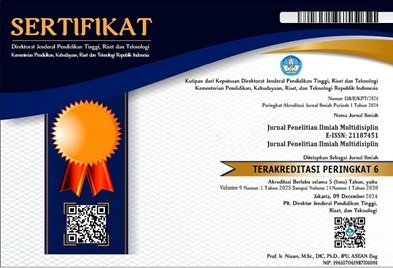HOPE PADA PELAKU UMKM KULINER BERSKALA MENENGAH YANG TERDAMPAK PANDEMI COVID-19 DI KOTA YOGYAKARTA
Kata Kunci:
Harapan, Pelaku UMKM Kuliner, Pandemi COVID-19, Tujuan, MotivasiAbstrak
Sektor usaha mikro, kecil, dan menengah (UMKM) memberikan kontribusi penting bagi perekonomian negara. Selama pandemi COVID-19 pelaku UMKM kuliner mengalami tantangan dalam menjalankan usahanya, seperti kurangnya bahan mentah, serta kebijakan - kebijakan pemerintah seperti pembatasan sosial skala besar (PSBB) dan physical distancing yang menurunkan minat masyarakat untuk berkuliner ditempat ramai pengunjung. Hal ini menyebabkan sebagian besar pelaku UMKM kuliner mengalami situasi sulit akibat penurunan omzet yang signifikan. Penelitian ini bertujuan untuk melihat gambaran harapan pada pelaku UMKM yang terdampak pandemi COVID-19. Penelitian ini menggunakan pendekatan kualitatif fenomenologi. Partisipan dalam penelitian ini merupakan tiga orang pelaku UMKM kuliner berskala menengah di Kota Yogyakarta. Analisis data menggunakan analisis Interpretative Phenomenological Analysis (IPA). Metode pengumpulan data pada penelitian ini menggunakan metode wawancara pada pelaku UMKM kuliner berskala menengah yang berada di kota Yogyakarta. Hasil penelitian menemukan bahwa ketiga partisipan mempunyai harapan yang tinggi untuk mencapai tujuan, ketiga partisipan mencapai tujuan dengan strategi masing-masing, memilih serta melakukan strategi masing-masing sehingga dapat melewati situasi sulit dari pandemi COVID-19. Ketiga partisipan merasakan rasa syukur dan adanya dukungan keluarga dalam proses harapan dalam mencapai tujuan. Penelitian ini menghasilkan tujuh tema besar, yaitu keinginan mencapai tujuan, tindakan untuk mencapai tujuan, peran motivasi, peran pengalaman, pandangan diri terhadap kemampuan, kebersyukuran, dan dukungan keluarga.
The micro, small and medium enterprise (MSME) sector makes an important contribution to the country’s economy. During the COVID-19 pandemic, culinary MSME experienced challenges in running their businesses, such as a lack of raw materials, as well as goverment policies such as large-scale social restrictions (PSBB) and physical distancing which reduced people’s interest in culinary arts in crowded places. This causes most culinary MSME to experience a difficult situation due to a significant decline in turnover. This study aims to see the picture of hope for MSME players affected by the COVID-19 pandemic. This study uses a qualitative phenomenological approach. The participants in this study were three medium-scale culinary MSMEs in Yogyakarta City. Data analysis using Interpretative Phenomenological Analysis (IPA). The data collection method in this research uses an interview method with medium-scale culinary MSMEs in the city of Yogyakarta. The results found that the three participants had high hopes to achieve goals, the three participants achieved goals with their respective strategies, chose and carried out their respective strategies so that they could get through the difficult situation of the COVID-19 pandemic. The three participants felt gratitude and family support in the process of hoping to achieve their goals. This research produced seven major themes, namely the desire to achieve goals, actions to achieve goals, the role of motivation, the role of experience, self-view of abilities, gratitude, and family support.





